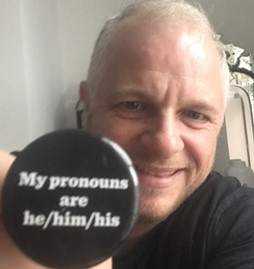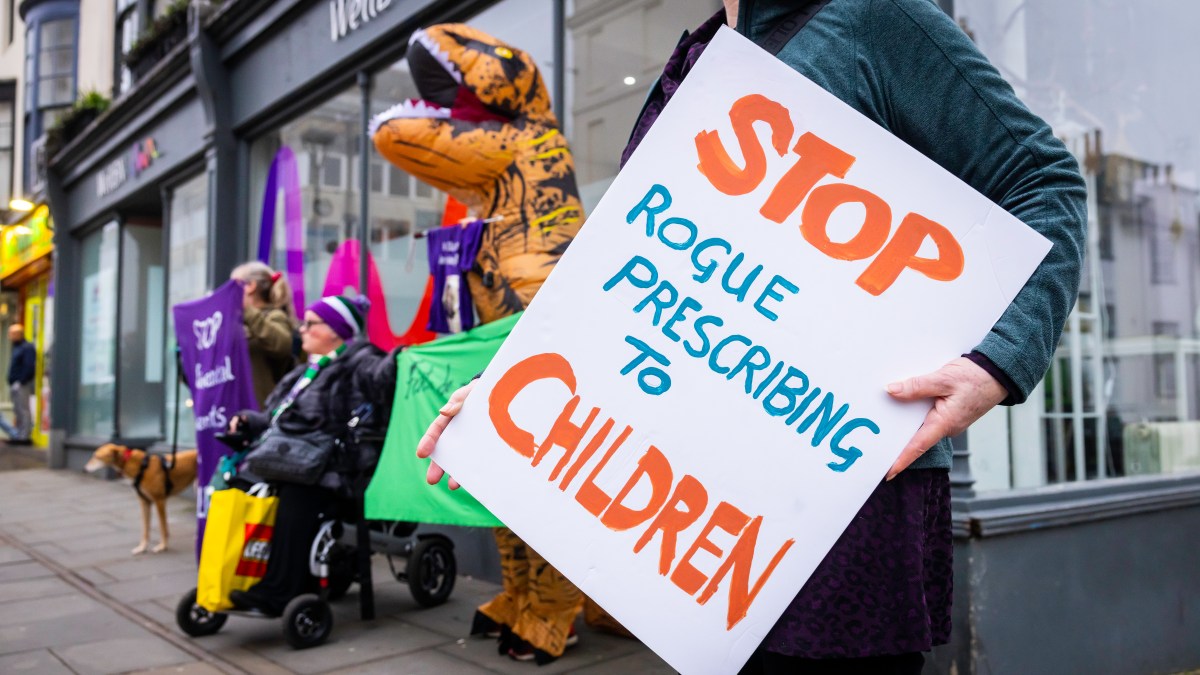The NHS has opened an investigation into a GP practice that prescribed gender drugs to teenagers after “indications that patient harm may have occurred”.
Gender care offered to children and young people by WellBN GP surgery in Brighton will be the focus of a five-week inquiry by NHS England and NHS Sussex.
A report by the two authorities said the possible “harm” being investigated related to the age of the patients prescribed the cross-sex hormones testosterone and oestrogen, which begin the physical process of changing gender, and puberty-suppressing medication.
The potential harmful practices were linked to the “apparent absence” of advice from paediatric endocrinologists, who specialise in hormones, and child mental health clinicians with experience of treating complex mental health issues, the report said.

The surgery has been at the centre of a controversy over claims it prescribed hormones to young people without parental consent
CIARAN MCCRICKARD FOR THE TIMES
Along with establishing what patient harms may have occurred and whether the clinic has breached the government’s ban on prescribing puberty-blocking drugs to under-18s, the investigation will consider whether any individuals should be referred to the police or professional regulators.
The report said: “NHS England has been made aware by NHS Sussex Integrated Care Board of concerns that WellBN General Practice may have been inappropriately offering initiation of puberty-suppressing hormones and masculinising and feminising exogenous hormones to several individuals under 18 years of age, including individuals who are under 16 years of age.”
The inquiry follows a long-running controversy involving the WellBN GP practice over claims that it had been prescribing feminising and masculinising hormones to 16-year-olds without parental consent.
Many of the allegations made by the parents of young patients involved Sam Hall, a transgender GP practising at the surgery, who was announced to have resigned from his position at the beginning of July. It was previously alleged that Hall was willing to prescribe hormones such as testosterone or oestrogen to young people who wished to change gender from the age of 16 after appointments lasting only 40 minutes.

NHS rules permit cross-sex hormones to be given to young people from the age of 16. However, the issue being scrutinised is whether Hall and WellBN failed to follow NHS protocols of only prescribing the drugs to under-18s through a multidisciplinary team and exercising the “extreme caution” recommended by Hilary Cass’s report into child gender care last year.
One father said his 17-year-old daughter, who identifies as a male, was prescribed testosterone by WellBN when she was 16. The father, who said his daughter was on antianxiety medication and antidepressants and has ADHD, is of the strong belief that the surgery is run by “gender ideologues”. He said: “These activists have abused my daughter and they are present throughout the NHS. WellBN is just a cog in a well-oiled machine.
“This report is the first time I’ve seen any evidence of clinical professionalism in the entirety of my daughter’s journey. It seems like the NHS is nudging towards a position where they are going to have to admit this is child abuse. It is utterly horrifying. There’s no doubt in my mind that is child abuse.”
The father, who does not wish to be named to protect his child’s privacy, admitted he was in a “world of despair” because his daughter was “just one stage away from having her breasts cut off”.
The report by NHS England and NHS Sussex estimated that WellBN was prescribing puberty-suppressing drugs, known as GnRH analogues, and cross-sex hormones to between 70 and 139 under-18s as of May. It confirmed that the practice gave 19 teenagers aged 15 to 17 testosterone and 22 patients of the same age group oestrogen.
Data in the document showed that 18 young people aged 13 to 14 and an unspecified number aged under 13 were prescribed the hormones by the surgery. The exact number of under-13s was redacted “to maintain patient confidentiality”. Fifty-nine children under 18 were shown to have been prescribed puberty-blocking medication.
The government banned the prescription of puberty-blocker drugs as part of gender treatment for children under 18 last year following Cass’s report, which recommended a “holistic approach” to child gender care.
The NHS published a policy in March last year that recommended that cross-sex hormones only be prescribed as part of a care pathway by a specialist multidisciplinary team to young people from the age of 16 with gender dysphoria. These hormones include testosterone, which prompts the development of male characteristics, such as the breaking or deepening of the voice, and oestrogen, which causes breast development and other feminine traits.
Long-term cross-sex hormone treatment may be irreversible, cause infertility and often leads to surgical intervention. Cass suggested that the drugs should only be prescribed to under-18s with “extreme caution” and a “clear clinical rationale”.
NHS Sussex confirmed in an update on its website on June 5 that the WellBN practice was no longer prescribing hormone medications to children and young people under 18 with gender dysphoria.
Paul Conrathe, a solicitor who recently brought a High Court challenge against the government over its failure to ban cross-sex hormones for under-18s, said the scale of the potential harm caused to the children treated at the WellBN practice was “shocking”.
He said: “Powerful life-changing drugs have been prescribed by an activist and ideologically driven GP practice. Numerous complaints and concerns about the safety of patients have fallen on deaf ears as the statutory authorities have failed to take action. This case raises serious concerns about the competence of the statutory authorities to protect children and young people from ideologically driven gender clinicians.”
